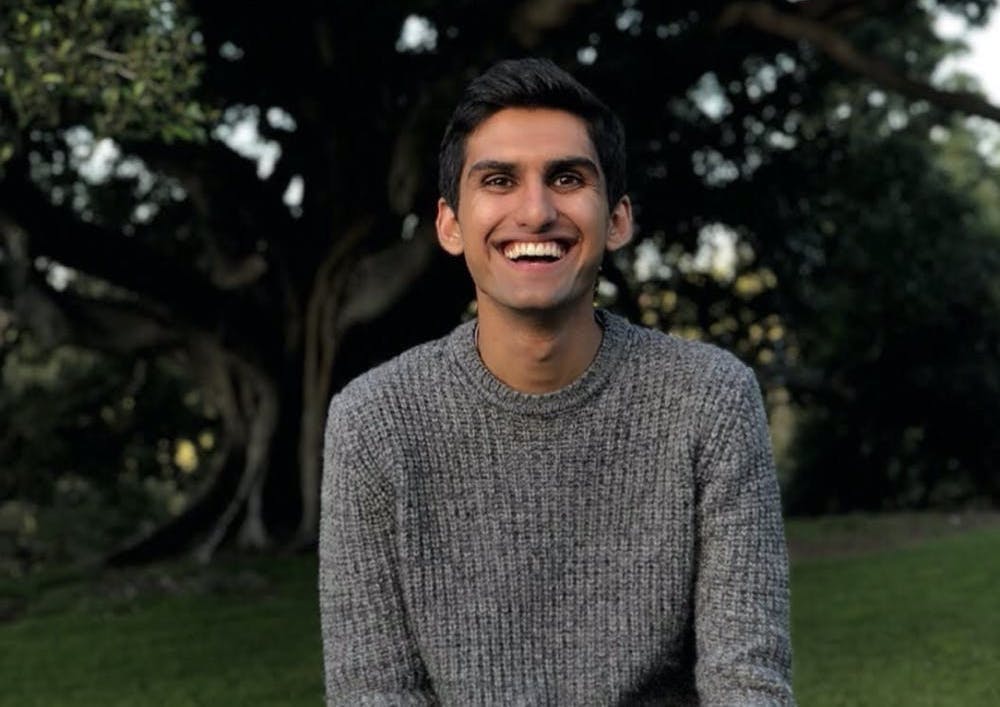Senior Nihaal Rahman was one of 18 students to be named a Luce Scholar last month. Founded in 1974, the prestigious scholarship is awarded annually by the Henry Luce Foundation to provide students with professional training to elevate their understanding of Asia. Each scholar is assigned to work with an organization somewhere in Asia based on their interests. This year’s program will last from August 2021 to July 2022.
Rahman transferred from the University of Virginia to Hopkins as a sophomore. Though he entered college as a prospective Neuroscience major, Rahman quickly gravitated toward Public Health and Environmental Science as a double major, something he believes resulted from his eagerness to explore different subjects in his first year.
“In my first semester, I took a philosophy class, Japanese and econ. I was really just trying different things to see what was out there,” he said. “I took the introductory Environmental Science class and got really excited by it, so I decided to take more Environmental Science classes the following semester. It was through those classes that I was introduced to Public Health.”
In his first semester at Hopkins, Rahman also worked in a lab at the Bloomberg School of Public Health. His research focused on addressing pollution in developing countries, emphasizing the complexity of environmental health problems and the role of public health and environmental science in addressing such issues.
According to Rahman, the two subjects are more interconnected than people might initially believe.
“Lots of public health topics are rooted in environmental issues or can be addressed as such. If you’re talking about obesity and malnutrition, how can you find sustainable food practices? That gets into environmental justice issues, like food sovereignty,” he said. “As time continues on, we will see more and more issues that are framed as public health problems but are rooted in the environment.”
Last year Rahman received a grant from the Center for Global Health to study public health issues in Uganda. When the trip was canceled due to COVID-19, Rahman instead worked with local restaurants to provide locally-sourced, sustainable food to low-income families during the pandemic.
This semester Rahman is interning at the Maryland Department of Health’s Office of Minority Health and Health Disparities. Rahman detailed how working for a government agency has changed his views on approaching public health issues.
“Getting to see issues of health equity on the state level has been a new perspective since a lot of my exposure has been through Hopkins and academia,” he said. “There’s a different way of thinking, different resources in place and different considerations.”
Outside of academics and research, Rahman has been a member of the Hopkins national service fraternity Alpha Phi Omega (APO) since his first semester at Hopkins. He highlighted the organization’s lasting impact on his career interests.
“APO introduced me to issues in Baltimore, whether that be childhood health, food insecurity or survivors of sexual abuse. These areas exposed me to different facets of public health, especially children’s health,” he said. “There are a lot of ways to get involved, and I think that’s really empowering.”
He added that the University’s service organizations play a crucial role in involving students in community issues.
Rahman also participated in the Life Design Summer Institute this past summer, noting that his experiences sparked his interest in pursuing scholarships like the Luce Scholars Program.
“A common theme that came up in those conversations was a need for cultural competency and the growth that can occur by putting yourself in a new setting and learning from the mentors you can find there,” he said. “So that inspired me to look into these national fellowship programs as a way to get these cross-cultural experiences.”
Though Rahman has not yet finalized the country and organization he will work for under the Luce Scholars Program, he is confident that the experience will guide him as an aspiring pediatrician.
“My ultimate goal, regardless of the country I go to, is to gain a broader perspective on health and medicine and try to bring cultural competency to the forefront of my work,” he said.





